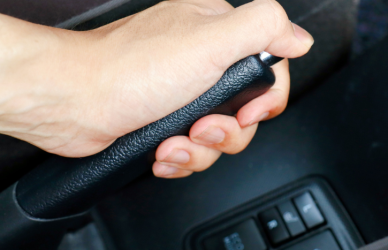Driver safety remains a key priority for state legislatures across the nation, with more emphasis being placed on tackling road rage. This growing concern has sparked action in many statehouses.
According to Forbes Advisor, California ranks highest in the probability of drivers encountering road rage incidents, followed by Missouri and Utah. On the other end of the spectrum, Hawaii boasts the lowest likelihood of road rage incidents, with North Dakota and South Dakota completing the bottom three.
Currently, only two states—Florida and Utah—have explicit road rage laws on their books. However, Nevada is now considering legislation to join this exclusive group.
Nevada’s Legislative Proposal
Nevada is ranked 20th by Forbes in terms of road rage incidents. Recognizing the risk, state legislators have proposed a specific bill to address road rage.
Presently, Nevada does not classify road rage as a standalone crime. Instances involving aggressive behavior on the road are typically categorized as reckless or aggressive driving. Under existing laws:
- If no injuries result, the offender may face up to six months in jail and/or fines of up to $1,000.
- If substantial bodily harm or a fatality occurs, the penalties increase to up to six years in prison and fines reaching $5,000.
Senate Bill 37 (SB37) seeks to establish formal regulations against road rage. The law would specifically define road rage incidents as cases where a driver or passenger:
- Commits an assault against another driver or occupant in response to an escalating incident on the highway.
- Intentionally operates a vehicle in a way designed to intimidate, harass, frighten, or alarm another vehicle’s driver or passenger.
Under this bill:
- A first offense would result in a misdemeanor charge.
- Repeat violations could lead to gross misdemeanor charges. Penalties could include imprisonment for up to one year, fines, community service, license suspension, and temporary loss of the vehicle involved in the offense.
SB37 is set to be debated in the Senate Growth and Infrastructure Committee once the regular session begins on February 3, 2025.
Utah’s Updated Road Rage Laws
Ranking third in the nation for road rage, Utah recently made significant strides to address the issue during the 2024 legislative session.
The state’s new regulations formally define “road rage events” as criminal acts committed by a driver during an escalated roadway incident, with intent to endanger or intimidate those in another vehicle. Crimes tied to road rage can now incur additional penalties.
Highlights of the law include:
- A minimum fine of $750 and the potential for prison time.
- Law enforcement may seize a vehicle without a warrant if it is suspected of being involved in a road rage event. The impound fee for such vehicles is set at $400.
- Judges have the authority to suspend the offender’s driver’s license. Repeat violations within a year will lead to mandatory license revocation.
These rules became effective as of July 1, 2024, marking significant progress in addressing road rage concerns in Utah.
Addressing Road Rage Across States
With incidents of road rage becoming increasingly prevalent, states like Nevada are taking steps to create specific laws aimed at curbing aggressive driving behavior. Both Nevada’s proposed SB37 and Utah’s newly enacted regulations demonstrate a growing commitment to improving driver safety and holding offenders accountable.
Source: Land Line











